7 Safety Tips When Cleaning with Chemicals
Cleaning can be therapeutic and down right satisfying. There’s just something about the process of taking something that’s dirty and transforming it into something fresh and clean. But cleaning can also have some unintended and scary consequences if you don’t know what you’re doing. Don’t be an idiot.
7 House Cleaning Safety Tips
Anytime you’re working with chemicals or you’re stretching and reaching into the nooks and crannies of your house, you have to be cautious. Here are some helpful safety tips that will ensure you enjoy the benefits of a clean house without any harmful consequences.
1. When in Doubt, Just Don’t
If there’s ever any hesitation, just don’t do it. If you need to step on the top rung of a ladder and stretch to dust the chandelier in the entryway and it feels a little dicey, don’t do it. It’s not worth it. Either leave it, get a new ladder, or hire someone to do it for you.
The same goes for mixing cleaning ingredients. If you aren’t 100 percent positive that you can do it, don’t. (That sounds really simple right now, but you have to remember it when you’re in the moment.)
When you buy through our links, we may earn a small commission.
2. Buy the Right Tools
If you’re serious about cleaning your house and staying safe, make sure you have the right tools. For example, if you have high 15- or 20-foot ceilings, don’t attempt to climb a ladder to dust the fan or remove cobwebs from crown molding. Get an extendable dusting wand (Canada) (USA) that allows you to effortlessly reach these hard-to-access areas. Buy the right tools so that you’re able to clean safely and efficiently. Improvising isn’t recommended.
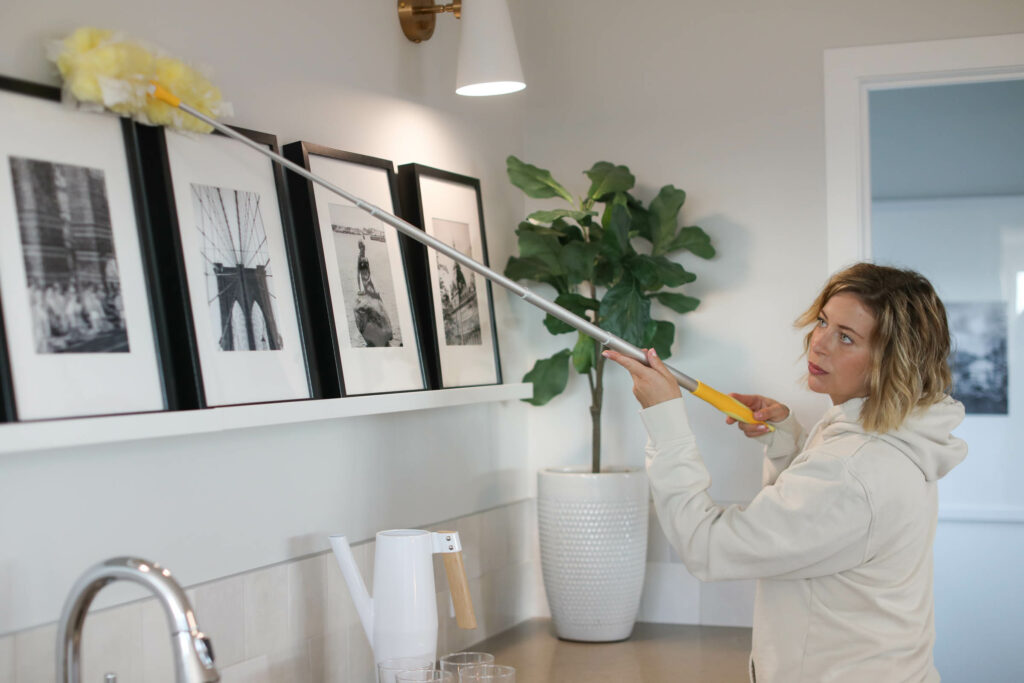
3. Wear Personal Protective Equipment
Household cleaners are not made to come into contact with skin, eyes, or lungs. Even mild cleaners can have harsh chemical reactions and could even cause burns. Your skin is highly absorptive and you don’t want to risk contact with dangerous ingredients.
When cleaning, always wear gloves. It might seem like a simple thing, but choosing the right gloves for the task is important. Protection is always the primary goal, so choose something that’s high-grade enough to keep your hands dry. (You should also read the label to ensure it’s chemical-resistant.) Flexibility is another factor to consider. It’s difficult to clean effectively if you’re wearing bulky, rigid gloves. Disposable gloves are fine, but you can buy reusable ones and save some money over the long run.
If you’re using a product that has strong fumes, wear a mask and make sure you have good ventilation. There are several different kinds of masks. You can research the right one for your needs, but the multi-layer activated carbon filter masks you find at local hardware stores are usually pretty good. Goggles or glasses are also recommended when there’s a risk of wet cleaning products splashing.
When working with any chemicals or cleaning agents you must ensure that you have proper airflow moving through the house. Open any windows nearby and make sure that you turn on any exhaust fans. It’s so important to keep fresh air moving throughout the house every time you clean
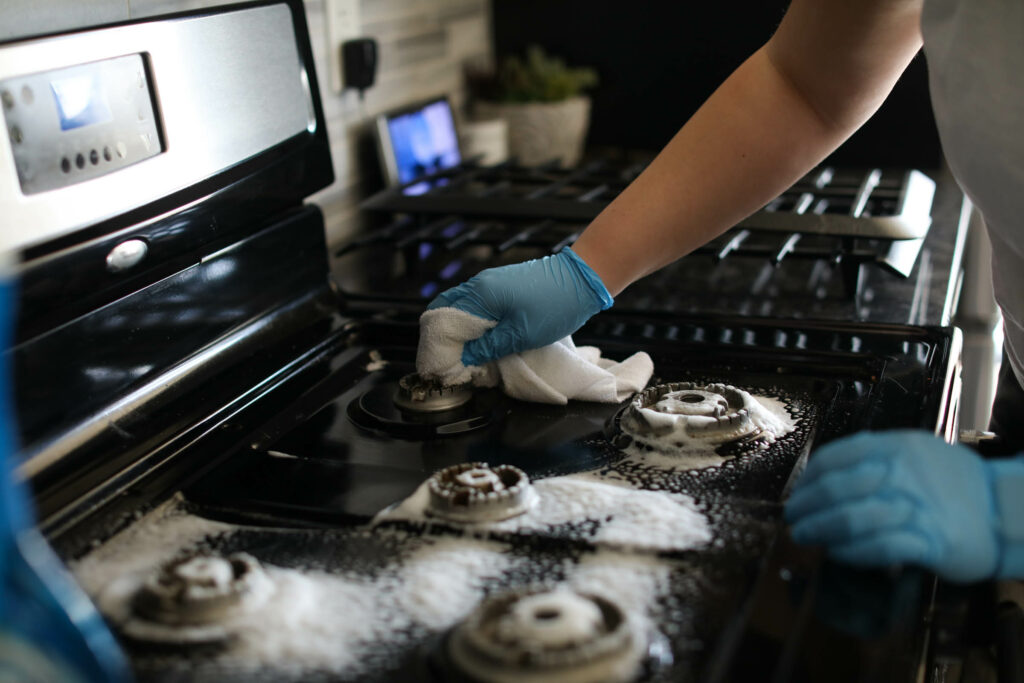
4. Protect Your Children
In a perfect world, you’d have an empty house and loud music playing while you clean. However, this isn’t always possible (especially if you have toddlers). If you are cleaning with kids at home, avoid leaving open bottles of chemicals around. Always put the cap back on cleaning products and use the self-lock features on spray bottles. Place them high up on counters and shelves (and away from the edge where they could be tipped over.) It’s also wise to go one room at a time and to clean up as you go. This allows you to keep a small footprint and avoid leaving your children unsupervised in areas you’re cleaning.
5. Label Homemade Products
When making homemade cleaning products, always put a label on the bottle so that you know what it is the next time you clean. You might think you’ll remember, but two brown bottles with a yellowish mixture are going to look very similar the next time you pull them out.
It’s also important to know how long homemade cleaning products last. Some mixtures are only good for a few hours, while others can last for weeks or months when properly stored away. Do your research so that you know ahead of time.
6. Avoid Mixing Cleaning Chemicals
Be careful where you get your advice (ahem, TikTok). At House Work, we have years of experience cleaning and know precisely which ingredients can and can’t be mixed. However, there’s a lot of bad advice on the internet. As a general rule of thumb, assume that two chemicals cannot be mixed until you learn otherwise.
Mixing chemicals can be very dangerous. Two otherwise safe ingredients can quickly become toxic and harmful when combined together. Other ingredients might be fine in small amounts, but could become dangerous when large amounts are mixed. Plus, individual allergies and health conditions can make certain ingredients harsh to certain individuals. Always do your research and be mindful of which sources you trust your safety with.

At House Work, because of the dangers of different chemicals, we prefer to keep things simple. But whenever in doubt, remember what we always say….water, bleach, and Tide® – anything else and you need an ambulance ride.


7. Natural Doesn’t Mean Harmless
Just because something is natural, doesn’t mean it can’t hurt you. Even certain natural cleaning ingredients and products can be harmful to your skin, eyes, or lungs. That’s why we recommend always wearing your protective gear when cleaning. It might seem like overkill, but it’ll save you some trouble!
Grab The House Work Cleaning Guide Today
Want to learn the ins and outs of cleaning yours like we do? Grab a copy of our guide and we’ll show you how to clean every square inch of your house right the first time!
For a list of our favorite products, click here.


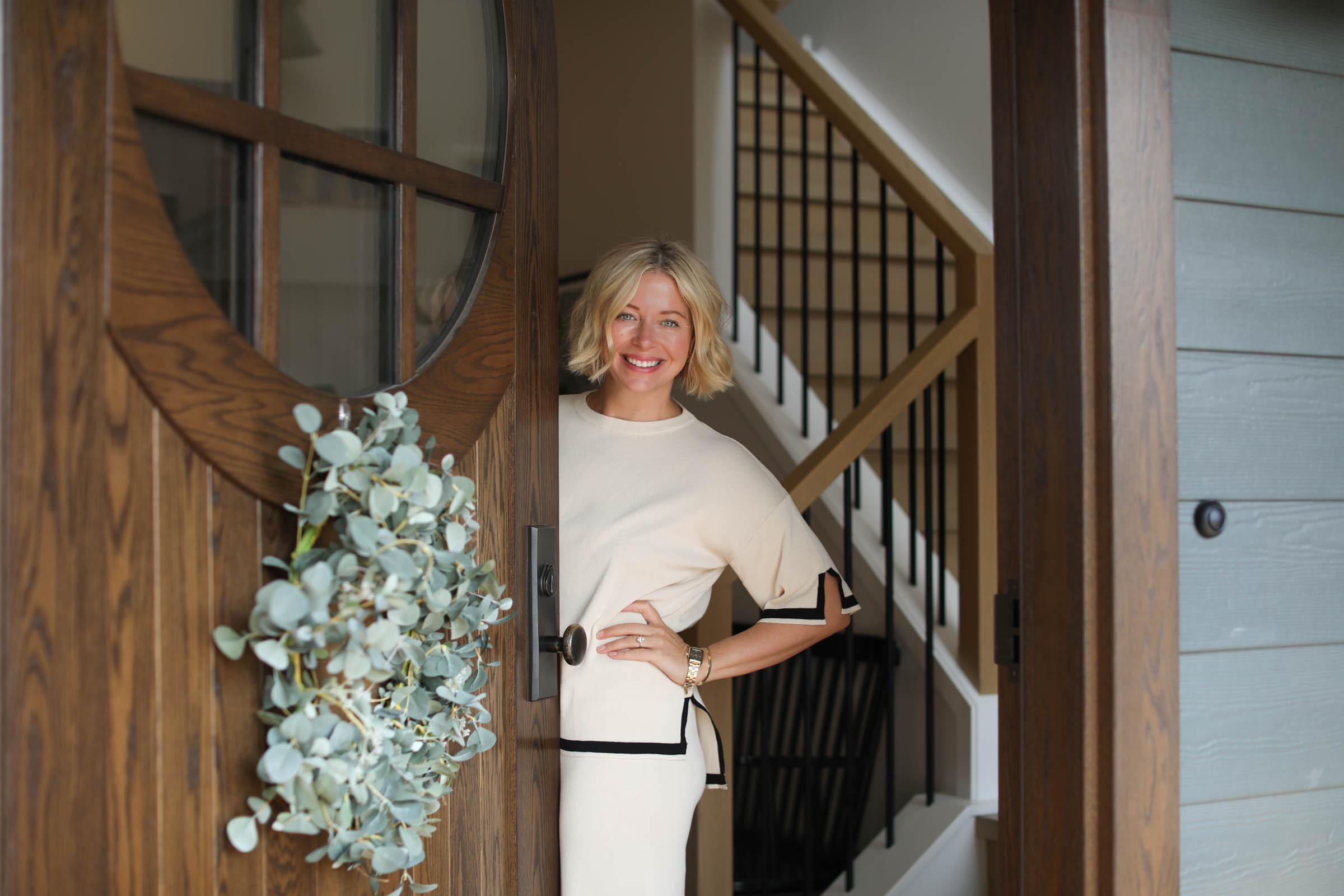
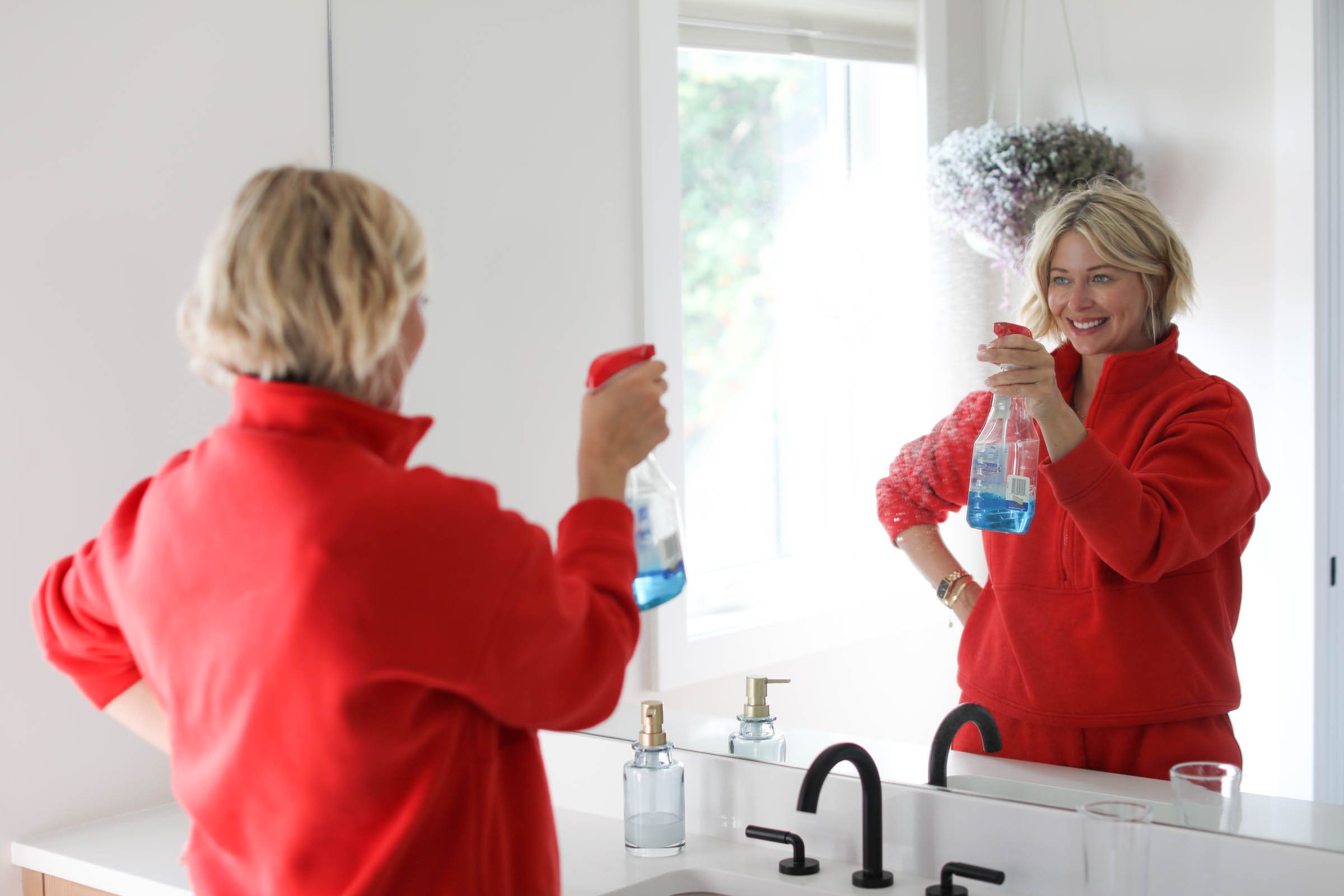
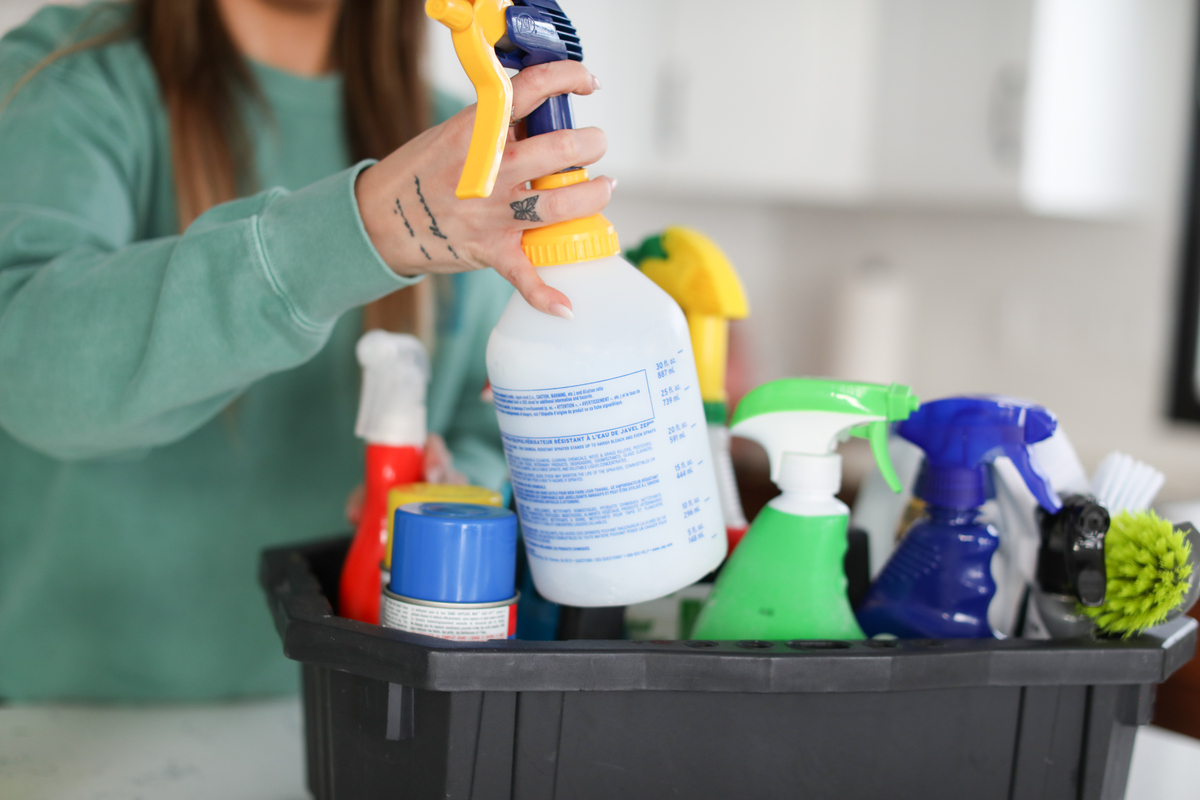
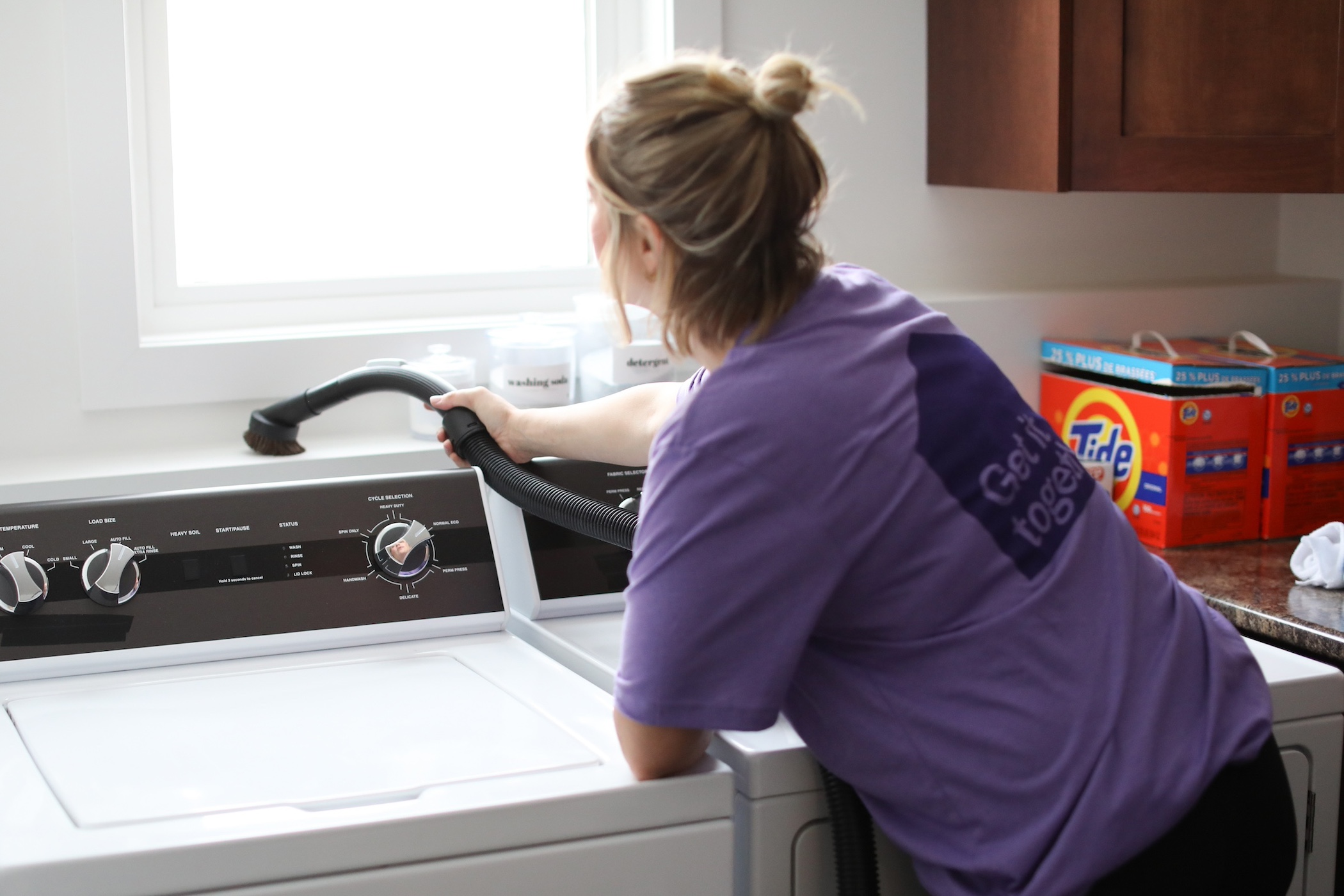
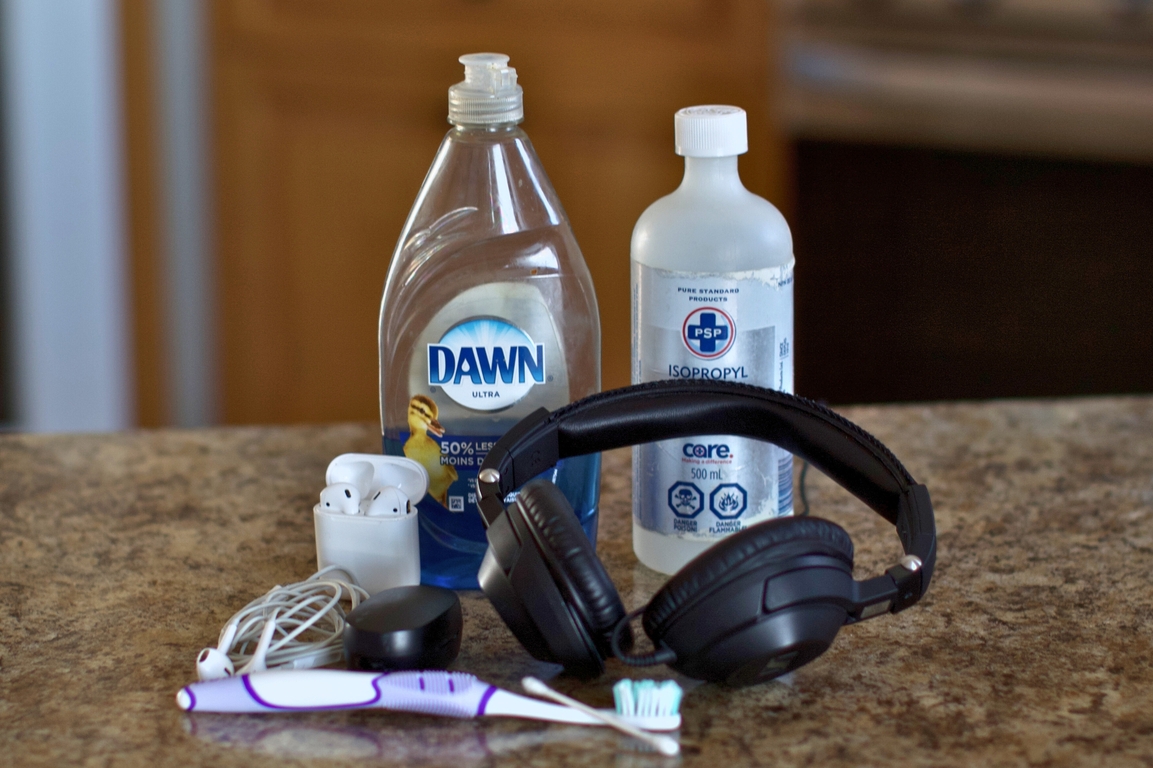
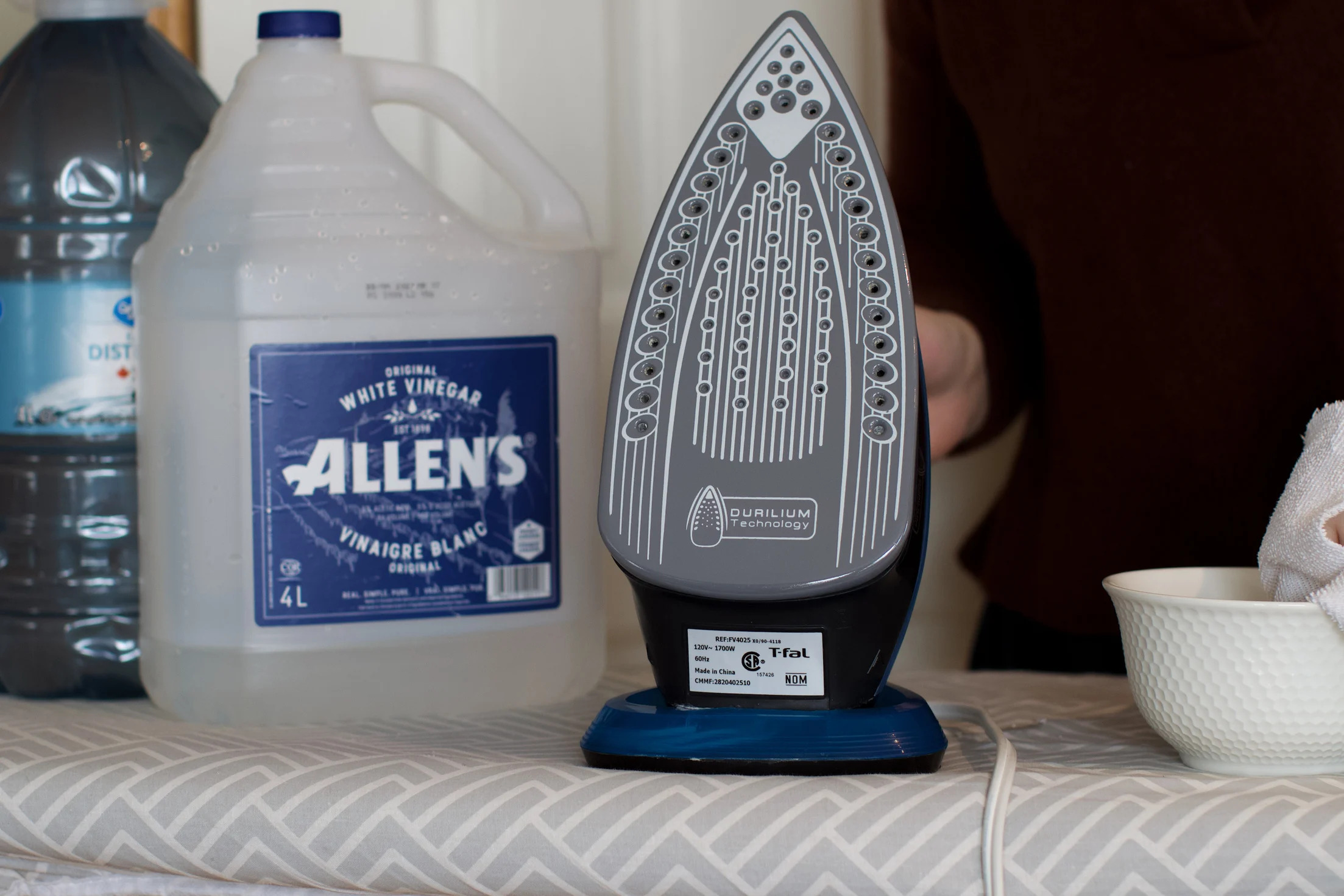
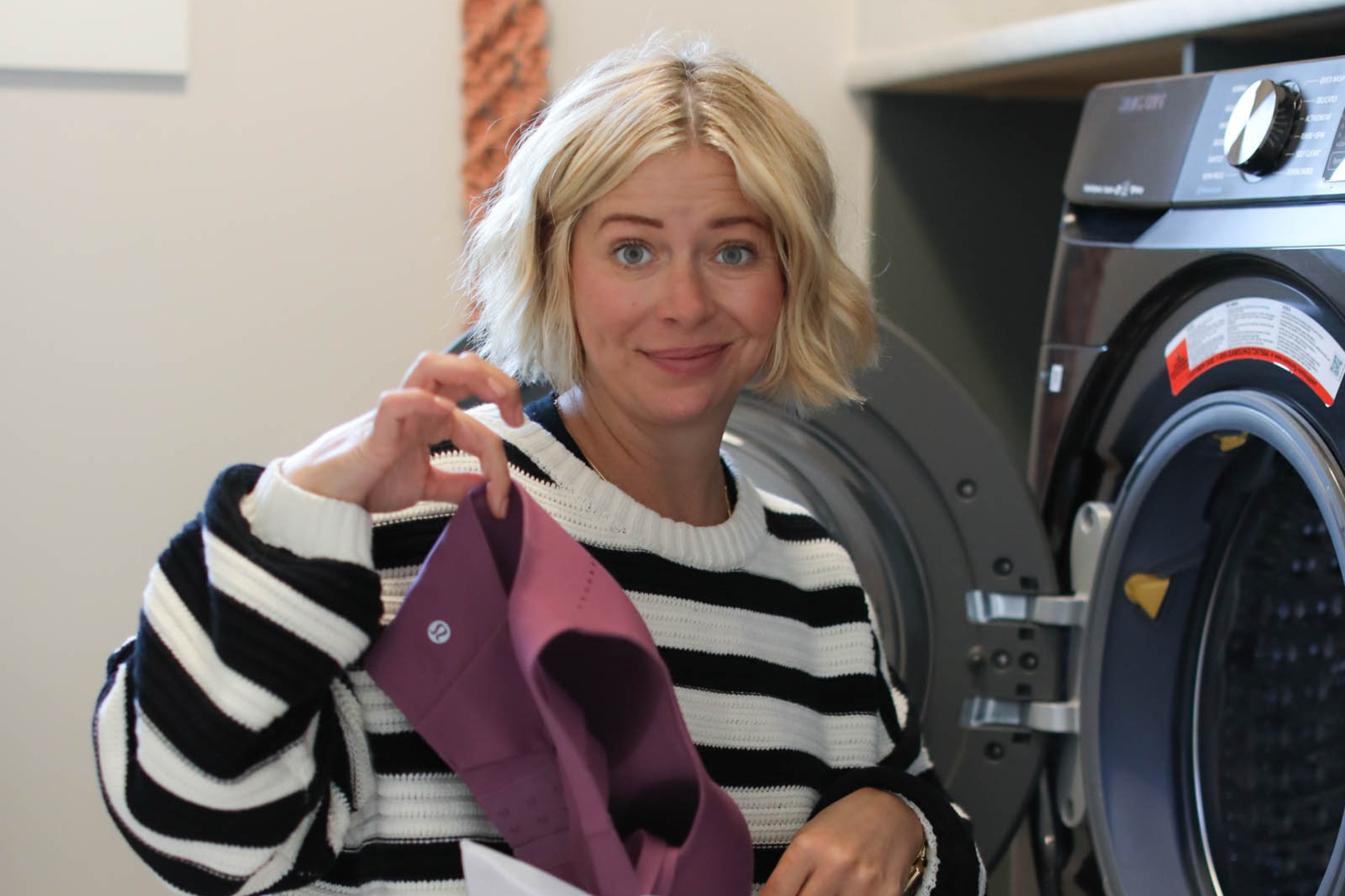
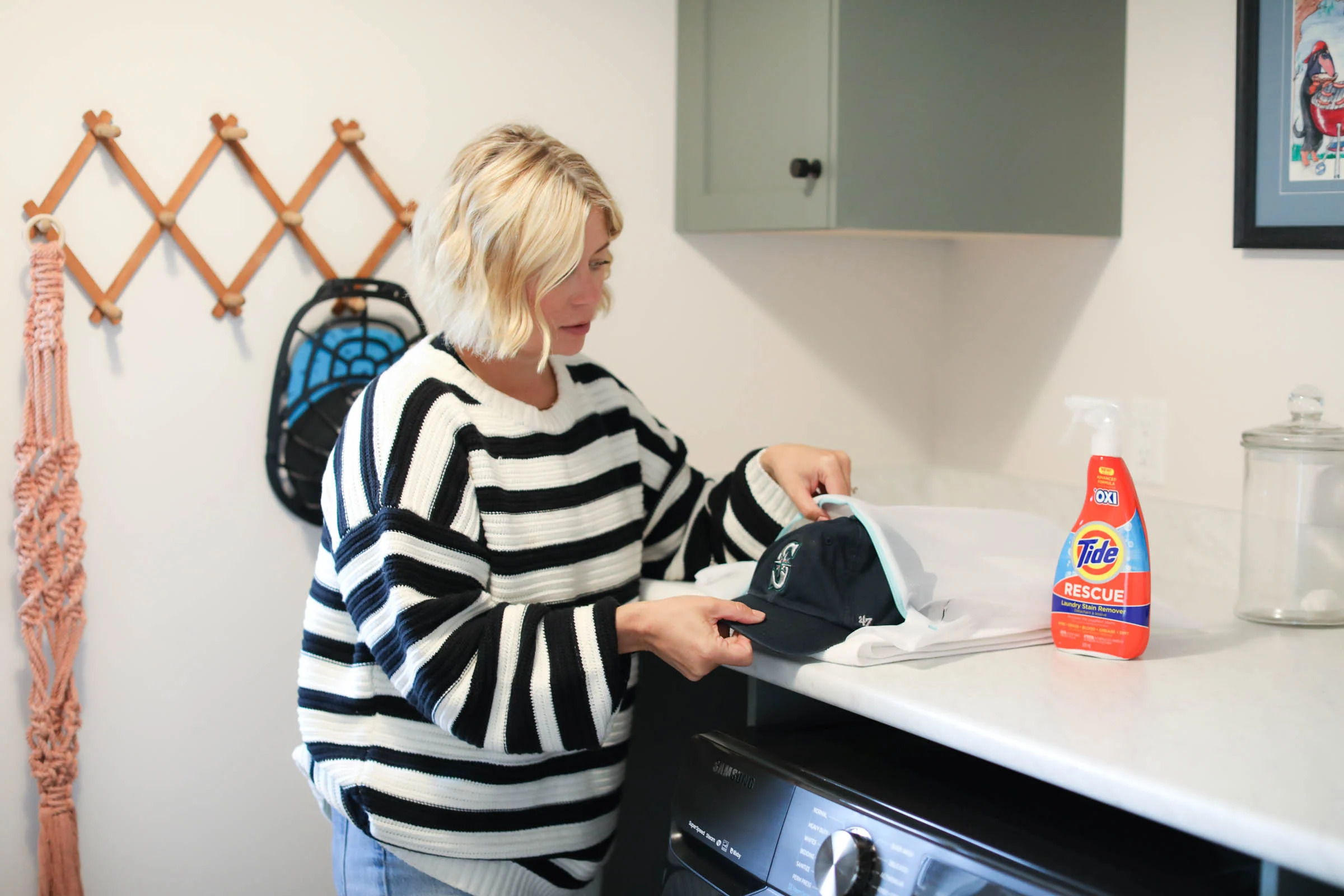

We're big on Instagram.
Follow @GoCleanCo for seriously satisfying videos and top-secret tips. Don’t be shy, come say hi.